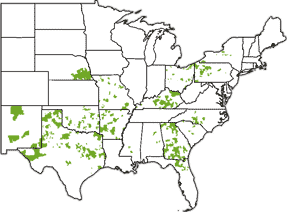By PETER SVENSSON, AP Technology Writer
Fri Aug 22, 10:36 AM ET
NEW YORK – Three months ago, Guy Distaffen switched Internet providers, lured from his cable company to his phone company by a year of free service on a two-year contract. But soon the company quietly updated its policies to say it would limit his Internet activity each month.
“We felt that were suckered,” said Distaffen, who lives in the small village of Silver Springs in upstate New York.
The phone company, Frontier Communications Corp., is one of several Internet service providers that are moving to curb the growth of traffic on their networks, or at least make the subscribers who download the most pay more.
This could have consequences not just for consumers, who would have to learn to watch how much data their Internet use entails, but also for companies that hope to make the Internet a conduit for movies and other content that comes in huge files.
Cable companies have been at the forefront of imposing and talking about usage caps, because their lines are shared between households. Frontier’s announcement is noteworthy because it is a phone company and it is matching a seemingly low ceiling set by a main cable rival: just 5 gigabytes per month, the equivalent of about 3 DVD-quality movies.
“We go through that in a week,” Distaffen said. “If they start enforcing the caps we’re going to have to change service.” Other subscribers on Broadbandreports.com, where the cap was first reported, echoed his feelings.
But since the other option for wired broadband in the village is Time Warner Cable Inc., switching providers isn’t necessarily going to get Distaffen away from a bandwidth cap. The cable company is trying out a 5-gigabyte traffic cap for new users in Beaumont, Texas. Every gigabyte above that costs $1. More expensive plans have higher caps at $54.90 per month, the allowance is 40 gigabytes. Depending on the results of the trial, Time Warner Cable may apply the same pricing structure elsewhere.
Frontier’s biggest market is in Rochester, N.Y., where it competes with Time Warner Cable.
“This isn’t really an issue that’s just going to be about Frontier,” said Philip Dampier, a Rochester-based technology writer who is campaigning to get Frontier to back off its plans. “Virtually every broadband provider has been suddenly discovering that there’s this so-called ‘bandwidth crisis’ going on in the United States.”
In a sense, caps on Internet use are no stranger than the limited number of minutes a cell phone subscriber gets each month. Internet use varies hugely from person to person, and service providers argue that the people who use it the most should pay the most. But the industry hasn’t worked out where to set the limits, or how much to charge users who exceed them. Fearing a customer backlash, most providers are setting the limits at levels where very few would bump into them. Comcast Corp. has floated the idea of a 250-gigabyte monthly cap.
Frontier says it plans to start enforcing its 5-gigabyte cap next year. First, it will let customers know how much data they use each month, a figure that most people don’t know how to track on their own (the tech-savvy Distaffen gets it from his Internet router). Then it will offer premium plans with higher caps to those who use more data.
Frontier says most of its 559,300 broadband subscribers consume less than 1.5 gigabytes per month. But in an e-mail to Frontier employees, Chief Executive Maggie Wilderotter said traffic is doubling every year, which means that by the time the caps would be put in place, a lot more users will exceed them. In two years, the average user could be consuming 6 gigabytes of traffic per month if the current growth rate holds up.
The growth of traffic means the company has to invest millions in its network and infrastructure, threatening its profitability, according to the e-mail.
Dampier disagrees, saying the costs of network equipment and connecting to the wider Internet are falling.
“If they continue to make the necessary investments … there’s no reason they can’t keep up” with increasing customer traffic, he said.


 Subscribe
Subscribe



